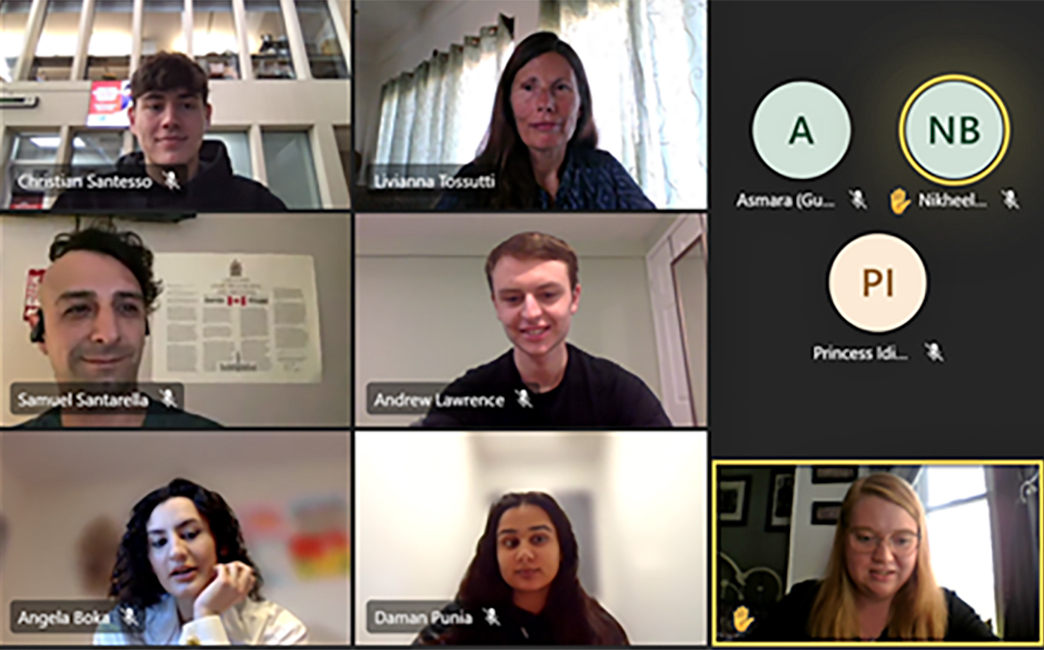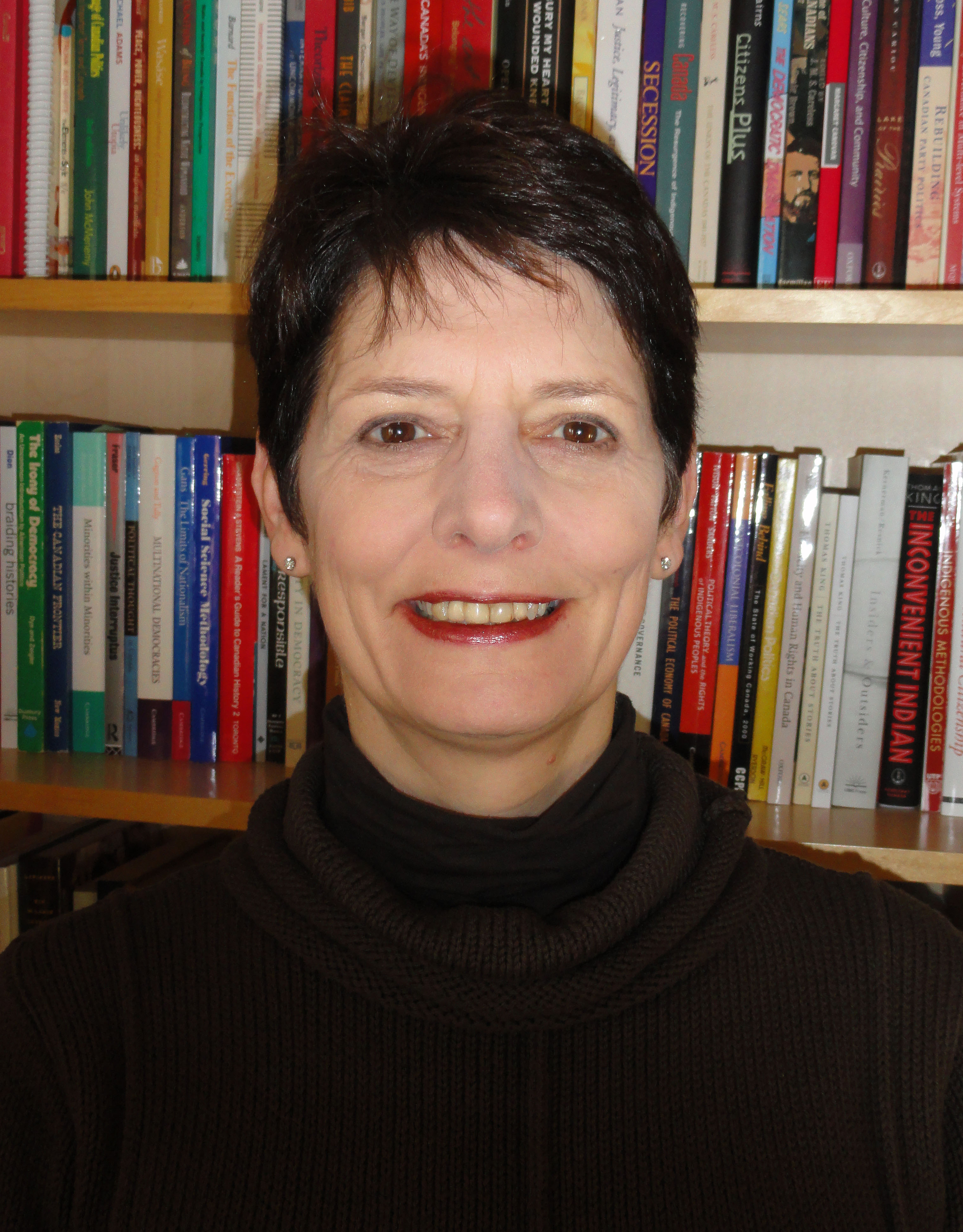Brock University students spent the fall researching transportation challenges in Ontario before sharing their findings with government officials.
Two representatives from Ontario’s Ministry of Transportation (MTO) recently attended presentations by students in the fourth-year Machinery of Government course.
Students in the class, taught by Assistant Professor Joanne Heritz in the Department of Political Science, completed a multi-faceted experiential education project by researching topics of relevance to the MTO and ultimately presenting their findings orally and in writing.
Four groups covered issues around electric vehicle policy, speed and road safety, light rail transportation and transit equity, including the need for equity training of workers making public transit decisions.
“These are key challenges in the area of transportation, so it was nice that students were able to do these projects so enthusiastically,” says Heritz. “They took a genuine interest in the topics they were researching, learned about transportation around the world and how policy lessons can be applied, and then acted in an advisory capacity by sharing their research.”
The project kicked off in early September when the local MTO office hosted the students for a tour and presentations by four ministry representatives about various aspects of their work.
Shortly after, the class was visited by Rebecca Van Massenhoven (BA ’22), who took part in the same course and presented to the MTO last year.
“I gained a lot of experience that translated into making my resumé competitive, which was something that I never expected coming into the class or working through the project,” says Van Massenhoven.
With support from Brock’s Centre for Pedagogical Innovation, Van Massenhoven learned to describe her experience in job application materials and quickly landed a summer internship as a student researcher for the Ontario Cabinet Office. Her supervisor later confirmed that her experience completing research for the MTO was one of the reasons she secured the role.
“The position gave me the opportunity to do some more research for the government, and I felt secure in taking that on because I was able to translate a lot of the skills from class into my internship,” says Van Massenhoven, who is now completing a master’s degree at Brock in Political Science.
She also says the course helped her understand how the research skills she developed in her degree are integral to making changes in the world, which has influenced her current graduate research project.
“The course made me aware of what research does and can do,” she says. “There are opportunities to do research that has impact, beginning as an undergraduate and continuing into my graduate studies.”
Noah Barron, a fourth-year Political Science major, was part of the group who tackled the issue of transit equity in their research this semester.
“In particular, we looked at cases abroad that emphasized important policy mechanisms that bridged the gap between marginalized groups and equitable transit access,” he says.
Barron adds that presenting to MTO officials added a layer of “intensity” to the project and drew out the best efforts of all of his group members.
“Professor Heritz’s willingness to incorporate real-life experience with our theoretical learning has been extremely important for our professional growth,” he says.
Heritz, who supported the students as they rehearsed their presentations and asked them practice questions to ensure they felt prepared, says it is exciting to see students rise to the challenge of making professional research presentations.
“It’s a transformative moment when the students take their education and what they learn and the tools they’ve acquired and use them to present their research outside the Brock community,” she says.
Project and Change Management Agent Taras Sakač and Young Business Professional Somnath Srinath, also currently a graduate co-op student in Goodman School of Business at Brock, attended the student presentations on behalf of the MTO.
Sakač describes working with Heritz to help students learn about the “broad scope of MTO’s mandate” — as well as hearing their final presentations, which he says “highlighted many pertinent transportation-related topics, including equity, safety, emerging technologies and public transportation” — as rewarding.
“In my opinion, collectively, the presentations confirm the need for the province to continue strengthening existing partnerships with the federal and municipal levels of government and external stakeholders so that we can more effectively address the diverse needs of our communities,” says Sakač.
Special thanks are due to Sakač and the MTO team who made this engagement possible:
- Lance Crossley, Project and Change Management Agent, Strategy, Improvement and Innovation Branch
- Michelle McGrath, Manager, Contract Management Office
- Michael Glinka, Team Lead, Environmental Policy Office
- Sandra Bailey, Head, Concession Services Section
- Somnath Srinath, Young Business Professional, Strategy Improvement and Innovation Branch
- Lucie Drabinova, Manager, Planning and Transformation







